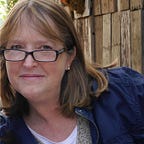Of MOOCs and MMORPGs
And how we learn
Education. It’s what I think about, and it’s pretty much all I write about. Whether it’s in social networks, my professional life, an academic paper, or my dissertation. I write about education. And as I look at the front page of the site, I notice the tagline, “a better place to read and write about things that matter.” The industrial age, and hopefully soon the type of education that accompanied it, are long gone. We are in a knowledge economy, where relevancy is our best asset. It’s the age of the learner.
If someone wants words that draw attention in an article’s caption, they just use MOOC or Clay Christensen or Educational Disruption in the title. We have StartUp EDU weekends, and Hackathons for Education. We have hash tags and hangouts, MeetUps and contests, and a bigger move toward education in the silo of social good. It’s all very real, and all very necessary.
We are often discussing education – free and open access - as an essential element that defines our culture. We are demanding it and flocking to it. This surprises me. It isn’t new. In 2001, MIT announced MIT OpenCourseware. By 2008, there were enough Open Educational Resources (OER, and most specifically lectures from Universities online) for Richard Ludlow to start Academic Earth. Academic Earth was a free compilation of the lectures and materials offered at no charge, online. They’ve been there. The ability to watch exactly what we watch in a classroom on a screen has been here for a decade, from many of the best instructors, free of charge. Bandwidth has been our only limitation, as well as discovery and the knowledge that these resources were available.
Without discussing the inception of MOOCs in 2008, because they were originally very different and connectivist in nature (and we now call them cMOOCs,) I will fast-forward to Sebastian Thrun’s first MOOC. This is the one that put them on the map, the one the got the PR. In October of 2011, the course that drew 170,000 registrations (with Wall Street Journal and New York times coverage) put MOOCs on the radar screen of the collective. The number of learners who completed the course was much smaller, but I am not of the belief that a MOOC needs to be completed to have educational value. Does a book?
Learning is our new hobby. Dr. Thrun’s first MOOC (an xMOOC, which is what we now call what we see in Coursera et al) was an experiment, which was obvious and transparent throughout the course. MOOCs are a work in progress, constantly evolving, new pedagogies and andragogies emerging, assessments and the management of massive groups of people constantly changing. Participants are tolerant. They are learners. More than half of them (as of writing) have undergraduate degrees, and almost as many have a masters or terminal degrees.
Where have we seen this before? Large groups of people, participating in the innovation, joining together for “projects” done with peers in the crowd? MMORPGs. We formed guilds instead of project groups. We looked for “powers” in our fellow guild members. In MOOCs those powers are a life skill that will be an asset in a course project that is assessed by fellow learners. Instead of waiting for an upcoming game (which we paid for) we wait for our next course to start.
I hesitate to speak about quality, because when we think of MMORPGs we think of a big business that sells software each person pays for, or even reserves ahead of time, that yields a profit. MOOCs are not there (yet.) They may have a “rock star” professor instead of fantastic animation, but people are taking the course at no charge. They are evolving and becoming more complex, just as MMORPGs evolved with better graphics and social layers. They have learned to shorten the lectures to 5 – 7 minutes, because that is what we tolerate. We are nowhere near the developmental phase we reached with MMORPGs. It is, however, a close analogy to watch. We learned from MMORPGs, we met peers, we formed groups, and we acquired skills. It is interesting to watch the parallel, and wonder where the divergence will take place. It will be interesting to watch the evolution of MOOCs, Open Education, Technology, and Online Learning - and to be a part of it.
